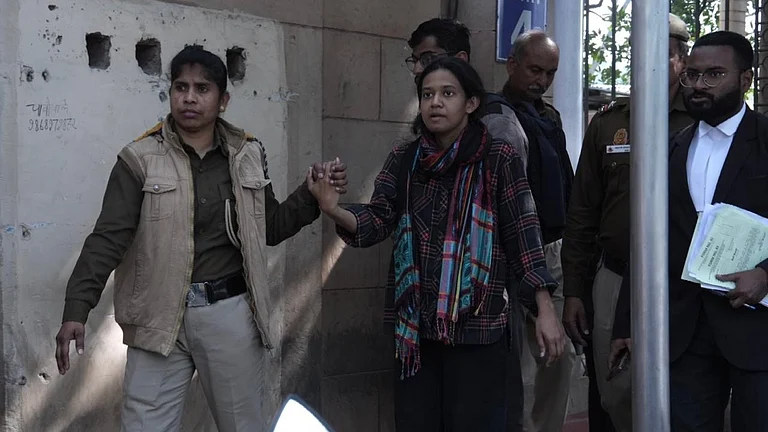P.V. Rajgopal is a former Director General of National Police Academy (NPA), the premier IPS officers’ training institute in Hyderabad. He earned fame in that assignment by introducing several reforms to bring that institution on par with global standards.
He also has the distinction of bringing to light the life and achievements of legendary senior police officer Khusro Framroze Rustamji, by writing two bestselling books “I was Nehru’s Shadow” (2005) and “The British, The Bandits and The Border men” (2009).
But for his patient work, Rustamji’s achievements would have been unknown or unread and would have been lying in the form of 4,000 handwritten dairy pages in Nehru Memorial Museum & Library (NMML- now renamed as ‘Prime Ministers' Museum and Library Society’) and another 7,000 pages of typed articles and clippings stored at Rustamji’s last residence in Mumbai.
Rajgopal has now published a potpourri of his reminiscences as “Fascinating musings of an IPS officer”. The subjects covered are varied, interesting and informative: policing problems, historical quotations from national leaders, significance of temple architecture and a motely of other subjects.
He mentions Pyarelal’s address at the NPA in 1978 on what Gandhiji expected from the police: “The police that I would maintain would be a body of reformers”. He then quotes Sardar Vallabhbhai Patel’s address to the police cadets in Ludhiana on 3 March 1949 “not to bring dishonour to their uniforms and to the flag they salute”.
A very interesting story in this collection is on the real Gabbar Singh from Bhind in Madhya Pradesh, subject of the blockbuster movie “Sholay”, who was eliminated in 1959 by Deputy Superintendent of Police R.P. Mody through a grenade. This was before the author joined the police. In 1993 he met the dreaded dacoit Mohar Singh who had killed 440 people between the 1940s and 1972, when he surrendered to Jai Prakash Narain (JP).
Other interesting pieces are on his meeting with Queen Elizabeth II and her consort Prince Philip, the Duke of Edinburgh in 1986 in Nepal and how in 1955 the visiting Soviet Prime minister Nikolai Bulganin and Secretary of Soviet Communist party were forced to travel in a police van meant for carrying prisoners in Calcutta, as their VIP car broke down due to the pressure of “the largest crowds in Indian history” as described by the New York Times.
In between he describes sobering incidents like how he could not locate a publisher for “I was Nehru’s Shadow,” despite the book carrying the gist of nearly 1600 pages of Rustamji’s notes on his 6 years of working with Prime Minister Jawaharlal Nehru, including some rare photographs.
Ultimately when a young publisher took the risk, the book entered the “best selling list” in December 2005 and January 2006. He mentions his “crowning glory,” which was a 2-page review by renowned editor, the late Khushwant Singh in “The Outlook” magazine. When he thanked him, Singh replied: “You did an excellent job with Rustamji’s diaries and deserve all the praise you received. Keep it up”.
A similar disheartening experience was faced while writing his second book “The British, The Bandits and The Border men” with NMML: out of seven cartons of Rustamji’s papers stored there, he was given access only to six and not the last one containing his diaries from December 1970. This was despite his meeting Rustamji and getting his permission to write his biography.
Later he came to know that this was reserved for a BSF officer who was commissioned by the organisation to write “Rustamji’s official biography” in Hindi. This time he was encouraged by an excellent review by the late Keki Daruwalla who complimented him: “You preserved his language, which is a feat in itself”.
One of the most interesting chapters in the book is “A policeman files the first PIL”. Rustamji, then member of the National Police Commission (1977- 1981), decided to expose our prison system where thousands of undertrials were languishing without trial, by drawing the judiciary’s attention through a PIL. He was building upon his experience of judicial support to him in 1960, while he was the police chief of Madhya Pradesh, for publicly opposing the presidential pardon of dacoit Tehsildar Singh even after the Supreme Court had upheld the sentencing.
In 1979 Rustamji published 8 such cases, which were brought to the attention of Chief justice Y.V. Chandrachud who assigned the PIL to Justice P.N. Bhagwati. As a result, nearly 40,000 undertrials languishing in several jails all over the country were released.





















